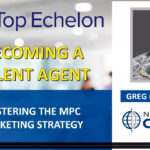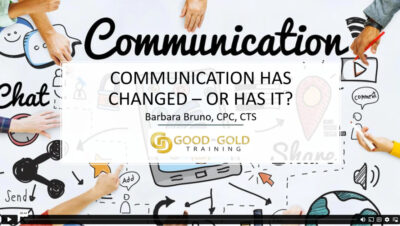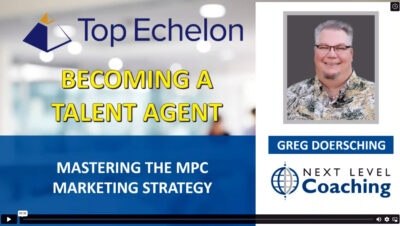Everybody is looking for an edge. It doesn’t matter if you’re a recruiter, a football player, or a politician.
In today’s ultra-competitive workplace and society, any edge—no matter how seemingly small—can make a big difference in the outcome and positively affect the results. In the recruiting profession, these results could be more placements and bigger billings.
There’s are two types of a recruitment edge for search consultants:
- A recruitment edge for an individual recruiter, whereby the search consultant is responsible for creating that edge for themselves
A recruitment edge for an entire agency, whereby the owner of the agency is responsible for creating the edge
Now, I know what you’re thinking. Shouldn’t both the individual recruiter AND the agency owner be doing everything they can to gain an edge in the market? Of course they should! However, there are numerous factors and circumstances that can interfere with such optimistic thinking.
As a result, it ultimately falls to the agency owner to be responsible for creating the recruitment edge within their agency. After all, they’re the owner. “The buck stops here” is how the saying goes. Sure, in a perfect world, the owner would hire recruiters who were self-motivated and didn’t need constant prodding or oversight. But, alas, the world is not perfect.
The good news is that we have a blueprint for helping an individual recruiter or an agency owner generate a recruitment edge on their desk and/or within their agency. (And of course, you can be an agency owner who also works a desk.)
The key to creating a recruitment edge
And the key to creating a recruitment edge is leverage. What does that mean, exactly?
To help answer that question, we’re going to draw upon the wisdom of recruiting industry trainer Jon Bartos of Revenue Performance Management. Bartos is a premier writer, speaker, and consultant on all aspects of personal performance, human capital, and the analytics behind them.
According to Bartos, leverage is any constraint that makes backing away much more difficult.
You may think it sounds foolish to put unnecessary constraints on your actions, but in reality it can give you new professional freedom. Leverage may be the best way to overcome psychological barriers that prevent you from staying focused. There are many different ways you can create personal leverage. Start by defining your motivation for achieving your goals.
According to Bartos, his friend Kent Burns from MRI wrote a great book titled What’s Your Why? His premise: if you can define the reason to achieve a goal, you will be much more committed to it. Is it your career, your family, your kids? You need to know what is driving you to make it happen.
With that in mind, Bartos advocates the following five tips for creating personal leverage in order to gain a recruitment edge:
#1—Make a written commitment.
Establish exactly what you will do on a daily basis. Put in writing the specific number of calls you will make a day or your daily phone-time goals. When things are in writing, instead of just mental notes, they tend to happen.
#2—Tell a friend or goal partner.
Now that you’ve written your objectives down and created a good why, enlist others to help you stay on track. This person must be someone who will be supportive and who has an understanding of the business, but also someone who won’t let you “off the hook” if you start to waver.
#3—Establish short-term commitments.
These can be much stronger than long-term goals. They allow you to focus your efforts and get great momentum early on. Short-term commitments could include calls per day, marketing presentations per day, or job orders per week. It is about establishing a new pattern of behavior, and that can be very powerful.
#4—Reward yourself for small victories and achievements.
When you find yourself meeting daily or weekly commitments, treat yourself to something special. You need to start feeling good about your successes, to condition your body and mind to winning. Repeated small success will end in big successes. Reward yourself. Then get right back into the game and achieve more.
#5—Punish yourself for not achieving results.
Yes, it’s the pain-and-pleasure principle. Wiser men than I have put forth that human beings are far more motivated by pain than pleasure because it is linked more closely to survival. While getting a big check or placing a senior executive is exciting and motivating, a loaded gun pointed at your head is even more so. Think of some small negative rewards for not achieving results. “If I don’t hit my send-outs for the week, I will run an extra five miles over the weekend.” Or “If I don’t meet my phone time goal today, I will go to work an hour early the next day.” Punishment can be a very effective way to keep you on track.
Get a recruitment edge with Top Echelon’s Training Library!
Top Echelon offers a free monthly webinar as part of its Recruiter Coaching Series. After the webinars are over, we post the recorded version of the webinars in our Recruiter Training Library. These webinars touch upon a variety of recruiter-related topics. These topics deal with both candidates and clients. As always, our goal with these webinars (and corresponding videos) is to help recruiters make more placements.
Jon Bartos has multiple videos in the Top Echelon Recruiter Training Library. In addition, many of these videos deal with recruitment ratios and other metrics. Some of these videos are listed below. Click on the title of each video for access:
- “Creating a Culture of Performance by Using Metrics”
- “Maximizing Performance Using the Pareto Principle”
In addition to training and webinars, Top Echelon offers other recruitment solutions. These solutions include the following:
- Big Biller recruiting software
- Top Echelon split network
For more information about Top Echelon and the products and services that it offers, visit the Top Echelon website by clicking here.








